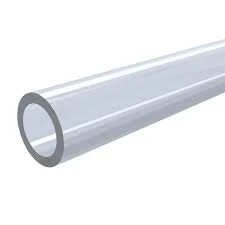дец . 10, 2024 01:06 Back to list
Understanding the Benefits and Uses of PVC Electrical Pipes in Construction
Understanding PVC Electrical Pipe Benefits, Applications, and Installation
PVC (Polyvinyl Chloride) electrical pipes have become a popular choice in various electrical installations, thanks to their advantageous properties. These pipes are generally used for housing electrical wiring and ensuring that electrical systems remain efficient, safe, and well-organized. This article explores the benefits, applications, and installation practices related to PVC electrical pipes.
What is PVC Electrical Pipe?
PVC electrical pipes, also known as PVC conduits, are hollow tubes made from polyvinyl chloride. They are designed to protect and route electrical cables in a safe manner. Due to their non-conductive nature, PVC pipes are excellent for preventing electrical shocks, making them a preferable option for electrical installations both indoors and outdoors.
Benefits of PVC Electrical Pipe
1. Durability and Longevity One of the main advantages of PVC electrical pipe is its durability. PVC is resistant to corrosion, rust, and environmental degradation, ensuring that the pipes will last for many years. This resistance helps maintain the integrity of electrical installations even in harsh environments.
2. Lightweight and Easy to Handle Compared to metal conduits, PVC pipes are notably lighter, making them easier to transport and handle during installation. This lightweight nature also reduces labor costs, as less intensive efforts are needed for installation.
3. Cost-Effective PVC electrical pipes are generally less expensive than metal alternatives. Their affordability makes them a popular choice for both residential and commercial projects. Additionally, the long lifespan of PVC reduces the need for frequent replacements, adding to the cost-effectiveness in the long run.
4. Non-Conductive Properties PVC is non-conductive, thereby providing a safe environment for electrical wiring. This feature significantly reduces the risk of electrical shock, making PVC conduits ideal for safely protecting wiring in various applications.
5. Resistance to Chemicals PVC pipes exhibit excellent resistance to a wide range of chemicals. This makes them suitable for environments where they might come into contact with oils, acids, and other corrosive substances.
Applications of PVC Electrical Pipe
pvc electrical pipe

PVC electrical pipes are widely used in various applications, including
- Residential Wiring PVC conduits are commonly used in homes for routing electrical wires in walls, ceilings, and floors. - Commercial Use Many businesses utilize PVC pipes for their electrical systems, particularly in apartments, office buildings, and warehouses. - Outdoor Installations PVC is a suitable option for outdoor wiring systems because of its resistance to moisture and UV light. - Industrial Applications In industries, PVC conduits can protect electrical wiring in manufacturing plants, warehouses, and more.
Installation of PVC Electrical Pipe
Installing PVC electrical pipes requires following specific guidelines to ensure safety and compliance with electrical codes. Here are some essential steps
1. Planning Before installation, plan the layout of the conduit system, considering the route, length, and fittings required.
2. Cutting Use a saw to cut the PVC pipes to the desired lengths. Ensure that the cuts are clean to avoid rough edges.
3. Joining PVC pipes can be joined using solvent cement or fittings. It's crucial to follow manufacturer instructions to ensure a secure and leak-proof connection.
4. Mounting Use straps or clamps to secure the pipes to walls or ceilings, ensuring that they are firmly in place while allowing for some movement due to thermal expansion.
5. Sealing Finally, ensure all openings are sealed to prevent moisture ingress, which can damage the wiring inside.
Conclusion
PVC electrical pipes are an essential component of modern electrical installations. Their durability, cost-effectiveness, and safety features make them a popular choice for various applications, from residential to industrial use. Proper installation practices further enhance their reliability and longevity, providing a seamless way to manage electrical wiring safely and efficiently.
-
Durable PP Rigid Sheet: Lightweight, Chemical Resistant Solutions
NewsAug.21,2025
-
PVC Grey Sheet for Extraction: Chemical Resistant & Durable
NewsAug.19,2025
-
Durable PVC Pipe Fittings for Plumbing & Irrigation Needs
NewsAug.18,2025
-
HDPE Steel Belt Reinforced Spiral Corrugated Pipe | High Strength
NewsAug.17,2025
-
HDPE Pipe Fittings: Durable, Leak-Proof Solutions
NewsAug.16,2025
-
Premium CPVC Sheet: High-Temp & Chemical Resistant Solutions
NewsAug.15,2025

